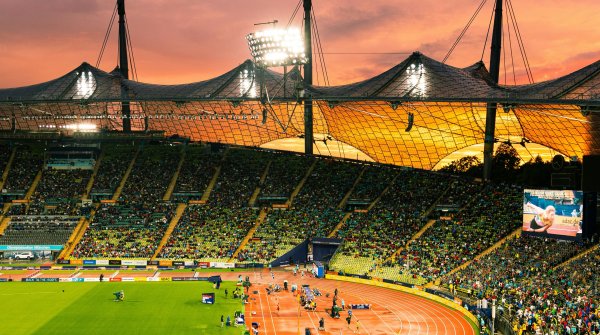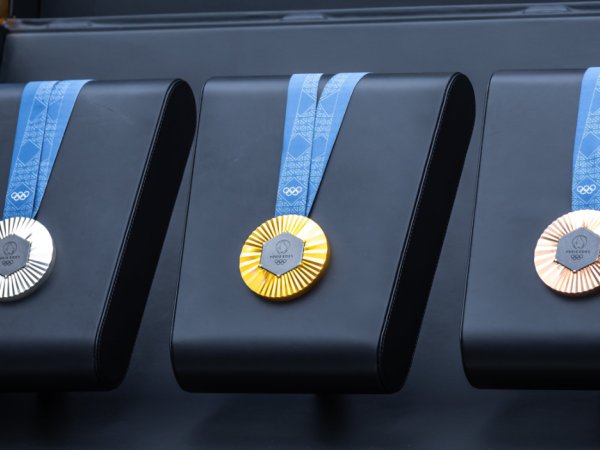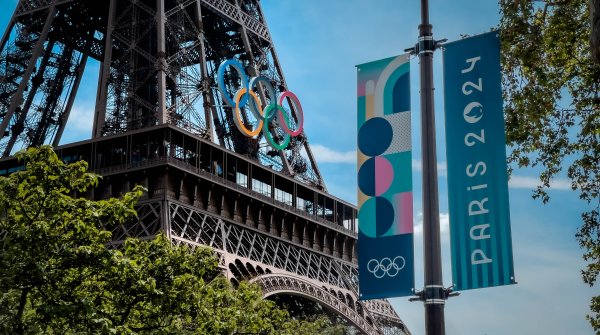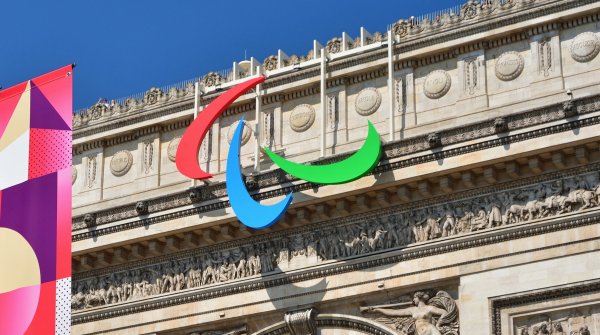The cash rewards for an Olympic victory vary greatly internationally. According to Forbes, there are more than ten nations that pay out six-figure sums for gold. Here are the top ten:
- Hong Kong: 768,000 euros
- Israel: 252,000 euros
- Serbia: 200,000 euros
- Malaysia: 193,000 euros
- Italy: 176,000 euros
- Lithuania: 164,000 euros
- Moldova: 154,000 euros
- Latvia: 139,000 euros
- Hungary: 138,000 euros
- Bulgaria: 125,000 euros
There are also regional differences in the bonuses for teams. In most countries, there is a smaller payout for each athlete than for an individual winner. In Italy, for example, there is no such difference: each team member receives the full cash prize.
Different countries, different rewards: Polish gold winners receive a diamond, a painting and a three-bedroom apartment in Warsaw. Serbia pays its winners a lifelong state pension from the age of 40. In Lithuania, gold medal winners live rent-free for life after their triumph. And in South Korea, all male medal winners are exempt from military service, which even famous professional footballers usually have to do for 18 months.
The medals for the Olympic and Paralympic Games 2024 are real works of art - and are often worth much more to the athletes than the cash prize. The plaques contain 18 grams of metal from the legendary Eiffel Tower. Ideally, the value of Olympic and Paralympic gold medals is huge anyway. Boxer Wladimir Klitschko, for example, sold his 1996 Olympic gold medal to an unknown bidder at auction for one million dollars, laying the foundations for the Klitschko brothers' foundation. It supports children playing sport in Ukraine - a truly golden idea.
The World Athletics Association has caused a stir with a decision: for the first time, 50,000 US dollars (around 46,000 euros) was awarded as an additional bonus to the gold medal winners in athletics at the 2024 Olympic Games in Paris. In the case of relay victories, the team receives the total amount, which they can then divide among themselves. For many athletes, this is a welcome recognition of their hard work and success. But not everyone is enthusiastic: while the bonus is a source of joy for the athletes, there are critical voices from other sports federations and the IOC in particular. They fear that financial incentives could change the Olympic spirit and create an imbalance between the sports. It is therefore questionable whether other federations will follow this example before the next Olympic Games.
Inflation or not - since 2014, the German Sports Aid Foundation has been paying for gold at the Olympic Games and Paralympics 20,000 euros, silver 15,000 euros and bronze 10,000 euros. This also applies to Paris 2024, so there hasn't been an increase for ten years. For team and relay medal winners - in Paris, for example, the Olympic champions in the new trend sport of new trend sport 3x3 basketball - the bonuses are determined "separately by the evaluation committee". As a rule, team athletes in Germany receive less money than successful individual athletes. All bonuses must, of course, be properly taxed. Another prerequisite for the payment of bonuses is that the athletes have competed in the run-up to the Olympics and Paralympics have already received support from Sporthilfe. And there is another catch: the bonuses are paid out in stages over the twelve months following the respective major event.
There has been fierce criticism of Germany's meagre rewards for gold in international comparison. Jens Kahl, sports director of the canoeists, who were once again the German sports association with the most medals in Paris in 2024: "The bonus funds at the German Sports Aid Foundation are limited. The question is whether this is the right approach or whether funds should be added from the federal budget to adequately pay for performance. What is certain is that other countries pay much more for Olympic success." After all, according to Kahl, this time there will finally be an Olympic and Paralympic gold bonus for coaches, presumably also amounting to 20,000 euros. In an interview, two-time Olympic track cycling champion Kristina Vogel, who is paraplegic following an accident, called for the German gold bonus to be increased to one million euros.
As a German, you have to be able to afford to play your sport so professionally in order to qualify for the Olympics. On the one hand, this has to do with the limited funds available for sports promotion.
On the other hand, a lot of money goes into the professional security of Olympic starters. Many are employed by the Federal Police, the Federal Armed Forces or customs, for example, and are released from work for sporting activities.
The elite program (sponsored by Mercedes-Benz) supports 150 athletes with medal prospects with sums of between 400 and 1800 euros per month.
 Sports BusinessThe future of the bike industry: 6 innovative bike stores
Sports BusinessThe future of the bike industry: 6 innovative bike stores
- ISPO awards
- Mountain sports
- Bike
- Design
- Retail
- Fitness
- Health
- ISPO Job Market
- ISPO Munich
- ISPO Shanghai
- Running
- Brands
- Sustainability
- Olympia
- OutDoor
- Promotion
- Sports Business
- ISPO Textrends
- Triathlon
- Water sports
- Winter sports
- eSports
- SportsTech
- OutDoor by ISPO
- Heroes
- Transformation
- Sport Fashion
- Urban Culture
- Challenges of a CEO
- Trade fairs
- Sports
- Find the Balance
- Product reviews
- Newsletter Exclusive Area
- Magazine






